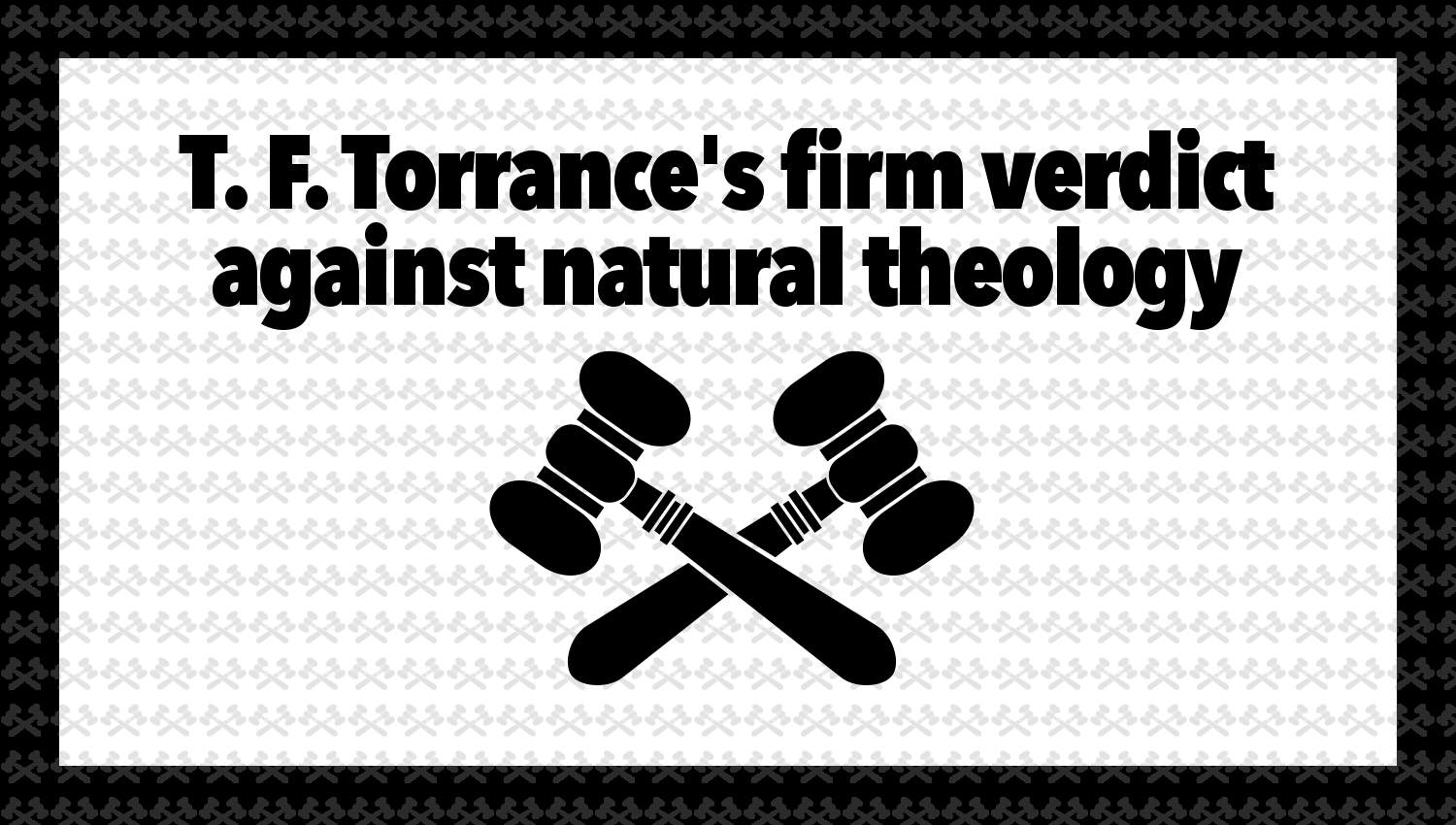Thomas F. Torrance makes a clever argument against natural theology in his book Incarnation: The Person and Life of Christ. It's a well known fact that Karl Barth was firmly against natural revelation (although he left the door open to natural theology late in life). So it is no surprise that T. F. Torrance who was Barth's translator and one of his greatest interpreters would likewise oppose natural theology. What is fascinating about T. F. Torrance is that he argues that Jesus' very words to the Samaritan women is an indictment against natural theology.
Here is T. F. Torrance's verdict against natural theology from Incarnation, and I will provide criticism after it:
All that we have said is remarkably summed up in the words of Jesus himself to the woman of Samaria: "You worship what you do not know; we worship what we know, for salvation is of the Jews." [John 4:22] 'You worship what you do not know"—that is Jesus' firm verdict upon all natural theology, and all religion adulterated with natural theology. It is in the history of Israel, in the Old Testament revelation with its covenant and liturgy and law that the lineaments of the face of God begin to be seen, until the face of God is fully seen in the face of Jesus Christ himself in whom God and man meet face to face. [1] [Incarnation, p44]
I appreciate the boldness of T. F. Torrance's attempt to place a condemnation of natural theology onto the lips of Jesus by using the red letter biblical words of Jesus (John 4:22). If Jesus was contrasting natural revelation (Samaria) to divine revelation (Jerusalem), then T. F. Torrance would have an excellent argument. However, the disagreement between the Samaritans and the Jews in John 4 is better explained as a dispute between the Jews and Samaritans over who were the correct interpreters and successors of Moses, and not an argument over natural theology. T. F. Torrance is speculating that Jesus' phrase "you worship what you do not know" means natural theology in a positive sense that the Samaritans may be worshipping in a way not revealed to them (and not explained in the biblical text), and it may mean natural theology in a negative sense that the Samaritans are rejecting later revelation after Moses (e.g. rejecting David and retreating back to Moses.)
Sources:
1. Thomas F. Torrance, Incarnation: The Person and Life of Christ, ed. Robert T. Walker (Downers Grove: InterVarsity Press, 2008), 44.
Related: Incarnation, Incarnation: The Person and Life of Christ, Jesus, Natural Revelation, Natural Theology, T. F. Torrance, TFT, Thomas F. Torrance




Leave a comment